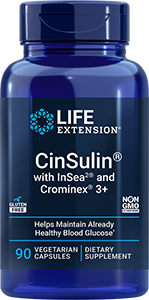- Science & Research
- Science News
- Newsletter
- 2012
- March 20

Newsletter
Newsletter
Omega 3 Fatty Acids Reduce Cardiovascular Events In Non Statin Drug Users
Omega-3 fatty acids reduce cardiovascular events in non-statin drug users
Tuesday, March 20, 2012. An article published on February 1, 2012 in advance of print in the European Heart Journal reports a favorable effect for low dose omega-3 fatty acids on the risk of cardiovascular events, including heart attack, cardiac arrest and stroke, in patients with a history of heart attack who did not use statin drugs. The current study included 3,740 men and women using statin drugs and 413 non-users who participated in the Alpha Omega Trial, which tested the effects of 400 milligrams per day of the omega-3 fatty acids eicosapentaenoic acid (EPA) and docosahexaenoic acid (DHA), 2 grams per day of the omega-3 fatty acid alpha-linolenic acid (ALA), EPA/DHA plus alpha-linolenic acid, or a placebo on the risk of major cardiovascular events in post-heart attack patients between the ages of 60 and 80 years. Participants were enrolled from 2002 through 2006 and were followed for an average of 41 months. Over the follow-up period, 13 percent of statin users and 15 percent of non-statin users experienced a major cardiovascular event. While neither EPA/DHA and/or ALA reduced cardiovascular events compared to the placebo in those who used statins, among those who did not use the drugs, consuming all three omega-3 fatty acids was associated with less than half the rate of experiencing an event compared to placebo. In their introduction to the article, Daan Kromhout and colleagues note that, "Although adding omega-3 fatty acids to statin therapy leads to significant reductions in triglyceride levels, it has also been suggested that the use of guideline-concordant statin therapy dilutes the effects of omega-3 fatty acids such that no additional protective effect is observed. This hypothesis is supported by the reduction in cardiovascular events through either fatty fish or EPA–DHA in trials in which less than one-third of the participants were on statin therapy." "The present study indicates that low-dose supplementation with omega-3 fatty acids might reduce the risk of major cardiovascular events in statin non-users with a history of myocardial infarction," the authors conclude. "These results contribute to the explanation of the inconsistent results on the effects of omega-3 fatty acids in secondary prevention trials." | ||||||||||||||||||||||||||||||||||||||||
 | ||||||||||||||||||||||||||||||||||||||||
| ||||||||||||||||||||||||||||||||||||||||
 | ||||||||||||||||||||||||||||||||||||||||
| ||||||||||||||||||||||||||||||||||||||||
Crominex®3+ is a registered trademark of Natreon, Inc. CinSulin® is a registered trademark of Tang-An Medical Ltd., manufactured under US patent #6,200,569. InSea2® is a registered trademark of innoVactiv™ | ||||||||||||||||||||||||||||||||||||||||
The latest news on aging, nutrition, and vitamins
Lab
Testing
How Life Extension lab testing works










